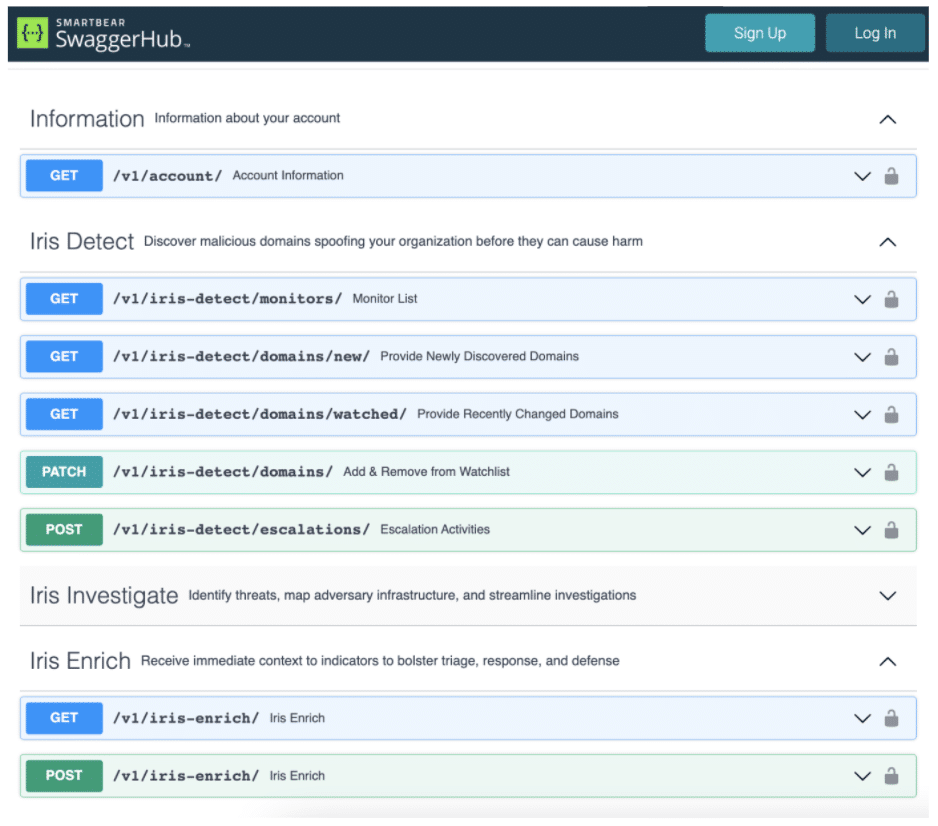DomainTools APIs Have More Swagger
As DomainTools customers may have noted in a recent newsletter, we recently added the DomainTools APIs to SwaggerHub. For those API users not familiar with this service, SwaggerHub lets you “test drive” API functionality without having to write your own code first, and makes integrations more straightforward. With it, you can output API client libraries or server subs into your language of choice to match your own dev environment.

Cybersecurity APIs have a lot of power, of course; they allow you to integrate data sources or capabilities, such as DomainTools or Farsight data, into tools and processes of your choosing. But when there isn’t a ready-made integration (such as our Splunk app, among others), it takes some work to make these integrations work smoothly and effectively. SwaggerHub (and some related API gateways such as Postman or Mulesoft) takes some of the labor and guesswork out of that process.
SwaggerHub is an open source tool, so the main cost associated with it is in the training required to master it (which is modest for folks who regularly work with APIs, particularly since it is OpenAPI 3-compatible). But it has some great capabilities. One of the notable ones is that SwaggerHub’s ease of use as well as its facilitation of better understanding of the DomainTools APIs can potentially save you a lot of time developing your internal documentation. And like most open source tools, SwaggerHub is also highly customizable.
If you’re curious, we invite you to check out the DomainTools documentation on SwaggerHub. You’ll be in good company—a growing number of DomainTools customers are using it.
Happy Exploring!





